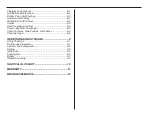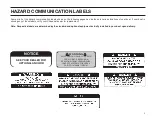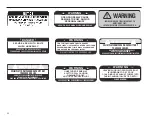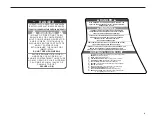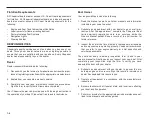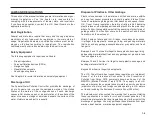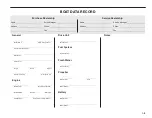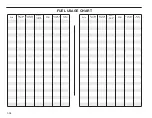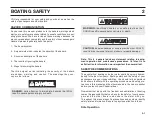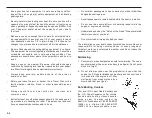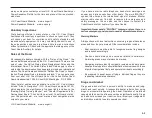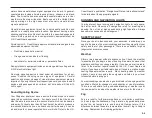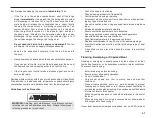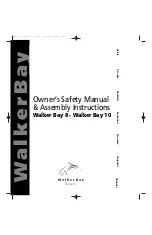
LAWS AND REGULATIONS
This section of the manual includes general information about gov-
ernment regulations. You, the boater, are responsible for
complying with the requirements of federal, state, and local laws.
If you have any questions, contact the U.S. Coast Guard or other
appropriate authority.
Boat Registration
Federal and state laws require that every boat having propulsion
machinery of any type must be registered in the main state of
usage. Registration numbers and validation stickers must be dis-
played on the boat according to regulations. The registration
certificate must be carried on board when the boat is in use.
Safety Equipment
The following equipment is required on all boats:
•
Fire extinguishers
•
Personal flotation devices (PFDs)
•
Navigation lights
•
Visual distress signals
•
Sound signaling device
See Chapter 2 for more information about safety equipment.
Discharge of Oil
The Federal Water Pollution Control Act prohibits the discharge of
oil or oily waste into or upon the navigable waters of the United
States or the waters of the contiguous zone if such discharge
causes a film or sheen upon, or a discoloration of, the surface of the
water or causes a sludge or emulsion beneath the surface of the
water. Violators are subject to a penalty.
Disposal of Plastics & Other Garbage
Plastic refuse dumped in the water can kill fish and marine wildlife
and can foul vessel propellers and cooling water intakes. Other
forms of waterborne garbage can litter beaches and cause illness.
U.S. Coast Guard regulations therefore strictly prohibit dumping
plastic refuse or other garbage mixed with plastic into the water any-
where. Further, the regulations restrict the dumping of other forms of
garbage within 12 miles from shore on the east coast, and 9 miles
from shore on the west coast.
Within 3 miles of shore and in U.S. lakes, rivers, bays and sounds,
it is illegal to dump plastic, dunnage, lining, and packing materials
that float; and any garbage except dishwater, gray water, and fresh
fish parts.
Between 3 and 12 miles it is illegal to dump plastic, dunnage, lining,
and packing materials that float; and any garbage not ground to less
than one square inch.
Between 12 and 25 miles it is illegal to dump plastic, dunnage, and
packing materials that float.
Beyond 25 miles it is illegal to dump plastic.
The U.S. Coast Guard has issued these regulations to implement
Annex V of the International Convention for the Prevention of
Pollution from Ships, 1973, commonly known as Annex V of the
MARPOL (Marine Pollution) Treaty 73/78. They apply to all U.S.
vessels wherever they operate (except waters under the exclusive
jurisdiction of a state), and foreign vessels operating in U.S. waters
out to and including the Exclusive Economic Zone (200 miles).
The placard must also contain the warning that a person violating
these requirements is liable for civil and criminal penalties. The
placard must also state that local regulations may further restrict the
discharge of garbage. You may purchase these placards from local
marinas, boat dealers, or marine equipment suppliers.
1-5
Содержание 2012 SSi
Страница 15: ...1 7...
Страница 16: ......
Страница 20: ......
Страница 49: ...3 14...
Страница 74: ...5 16...
Страница 75: ...5 17...
Страница 93: ......
Страница 101: ......
Страница 108: ...WIRING SCHEMATICS 12 12 1 196 206 216 SSI...
Страница 109: ...12 2 196 206 216 SSI...
Страница 110: ...12 3 226 SSI...
Страница 111: ...12 4 226 SSI...
Страница 112: ...12 5 246 SSI...
Страница 113: ...246 SSI 12 6...



